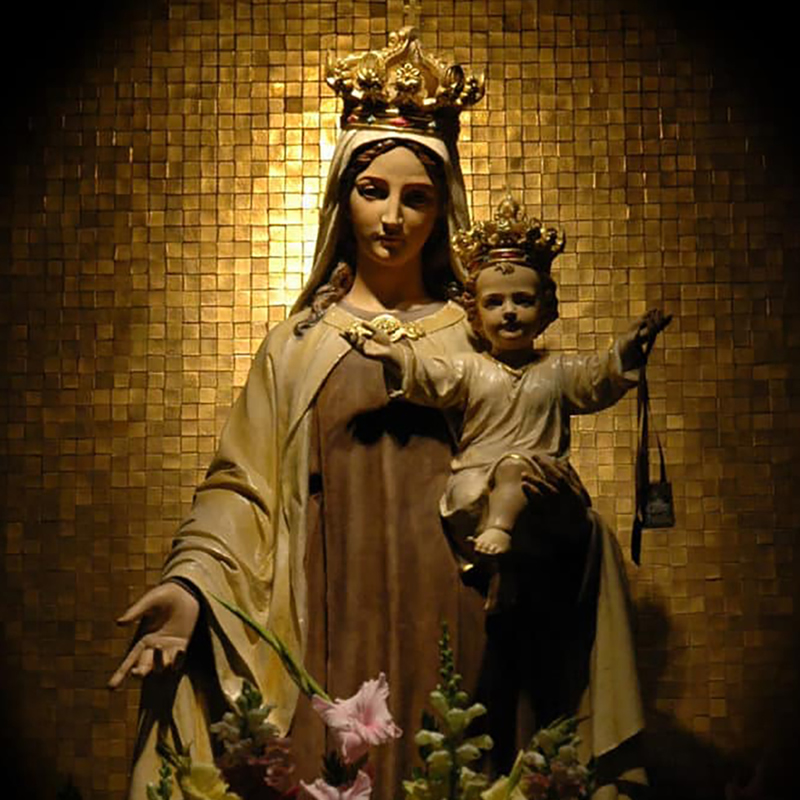Stages of the OCIA process
The Order of Christian Initiation of Adults is a process developed by the Catholic Church for prospective converts to Catholicism who are above the age of infant baptism. Candidates are gradually introduced to aspects of Catholic beliefs and practices.
The program is designed to show the Catholic faith to adults who are considering becoming members of the Catholic Church by receiving the sacraments of initiation (baptism and/or communion and confirmation).
During this process, we will be discussing the teachings and practices of the Catholic Church in a welcoming and open atmosphere where we hope to have authentic discussions about our faith, provide opportunities for fellowship, help you find a place in our parish community and develop a rich prayer life and intimate relationship with Jesus Christ.
We have a team of volunteers, skilled catechists, sponsors and many members of our parish community here to walk this journey of faith alongside you.
First Step: Initial Interview
For those interested in beginning the OCIA process, the first step is contact us at ocia@olmctempe.com. A meeting time will be arranged to get to know you and your faith background as well as how the Lord has been working in your life to bring you to this point. Any questions you have will be answered and an overview of the process for you to learn more about the Church will be explained. We ask you to complete the Adult Sacrament Registration Form to officially register you in the process at Our Lady of Mt. Carmel.
Phase 1
Inquiry
This first period of the OCIA process provides the opportunity for inquirers (unbaptized or baptized) to hear the mystery of Christ proclaimed, ask questions, share experiences, and begin to feel at home in the faith community. Seeking the wisdom of Jesus in the Catholic Church together, we discover new-found meaning, hope, love, and faith. Formally named the “period of evangelization and the precatechumenate”, this is a period of indeterminate length that ends when it is decided that an inquirer is ready to participate in the celebration of the Rite of Acceptance.
Phase 2
Catechumenate
Having its root in the Greek “katechien” meaning “echoing down” this extended period of formation in the Christian life is devoted to passing on the deposit of faith given to the apostles by Jesus Christ and entrusted to his Church. It includes a thoroughly comprehensive catechesis on the truths of Catholic doctrine and moral life so that participants may come to understand, confess and live that faith as a disciple of Christ. As we delve deeply into the treasury of the Church, you will be amazed by the truth you will discover.
Reflection on the Word
Adults who have entered into a relationship with the Church through the Rite of Acceptance in preparation for baptism are dismissed at the end of the Liturgy of the Word during the 09:00am Sunday Mass each week until shortly before their initiation. This time, ordinarily lasting the remaining duration of the Mass, is Mother Church’s way of feeding more richly with the Word of God those who cannot yet be fed by partaking of the Holy Eucharist. Dismissal provides catechumens an opportunity to discuss the Mass readings for that Sunday with a facilitator, and to experience more fully the impact of the Scriptures in their lives.
Phase 3
Purification and Enlightenment
This is a period of more intense spiritual preparation, consisting of interior reflection, and is intended to purify the minds and hearts of the elect as they search their own consciences and do penance. This period is intended to enlighten the minds and hearts of the elect with a deeper knowledge of Christ the Savior. This time of spiritual preparation prepares the elect for the reception of the Sacraments of Initiation.
Phase 4
Mystagogy
Formation in the Catholic faith and life does not end with receiving the Sacraments of Initiation. Derived from the word mystery, mystagogy (literally a “deepening in the mysteries”) is a time of post-baptismal catechesis for continued spiritual growth, entering more fully into the life and unity of the Catholic community, and strengthening the Christian experience, especially in appreciation for the sacramental life.
